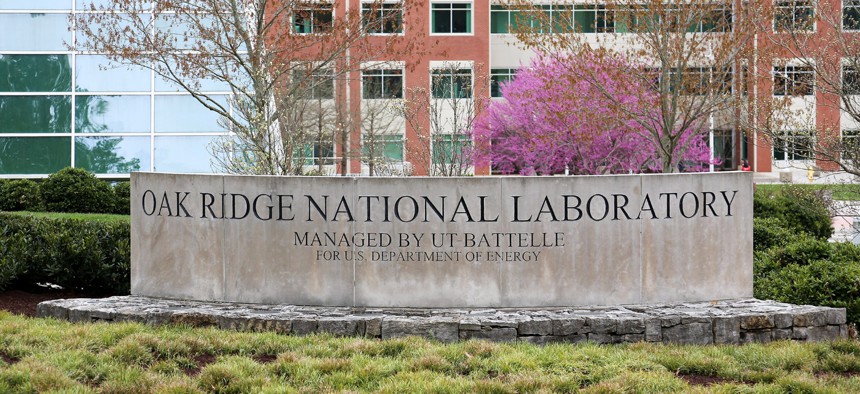Oak Ridge public-private partnership looks to advance quantum tech for the power grid

U.S. Department of Energy, Oak Ridge National Laboratory
The partnership between Oak Ridge National Laboratory and utility provider EPB aims to find ways that quantum technologies can enhance energy resilience.
A new cooperative endeavor based at Tennessee’s Oak Ridge National Laboratory unites public and private sector players to push forward advancements in the quantum sciences field, particularly for solutions to further secure the U.S. energy grid.
Unveiled last week, the Collaborative for Energy Resilience and Quantum Science is a joint effort between ORNL and utility company EPB of Chattanooga, following a decade of prior collaboration.
Travis Humble, the director of the Quantum Science Center at ORNL, said that CERQS will address four key areas of focus: research and development in quantum sciences and technologies, energy security innovation, cultivating an adequate workforce and bringing more jobs to the East Tennessee region.
Chiefly, however, the collaboration will work to marry quantum information technology with electrical grid optimization.
“The collaboration itself is really focused around this energy resiliency question,” Humble told Nextgov/FCW. “‘How does quantum factor into that? Is it securing the grid? Is it this idea of controlling power distribution? Is it sensors to monitor fluctuations?’ All of that is on the table.”
Addressing how to bring quantum systems into cybersecurity protocols for the U.S. power grid is one of the priority deliverables the collaboration looks to address. Humble clarified that it is too early to deploy either the hardwares or softwares required to successfully prevent attacks from a hypothetical fault-tolerant quantum computer.
He noted that bringing a partner like EPB into the research endeavor, particularly to provide testbeds and other resources, helps expedite deliverables in more emerging fields like quantum information systems to power grid security applications.
“It's hard to predict exactly how it's going to transform things but I think everybody just has kind of a good feeling that it's the right direction to go,” Humble said.
The other important aspect to this partnership, according to Humble, is how it retains critical research in quantum sciences in the public sector, as that continued democratization of early-stage research in quantum information systems and their applications helps spur other use cases.
He noted that increasing engagement with the broader community — even those external to the hard sciences — is also crucial to supporting innovation in emerging technologies.
“That's very much the idea: we've got to pull in the rest of the population in order for this to transition out of the laboratory,” Humble said. “If people don't pick it up, it’ll be another technology that dies on the shelf.”



